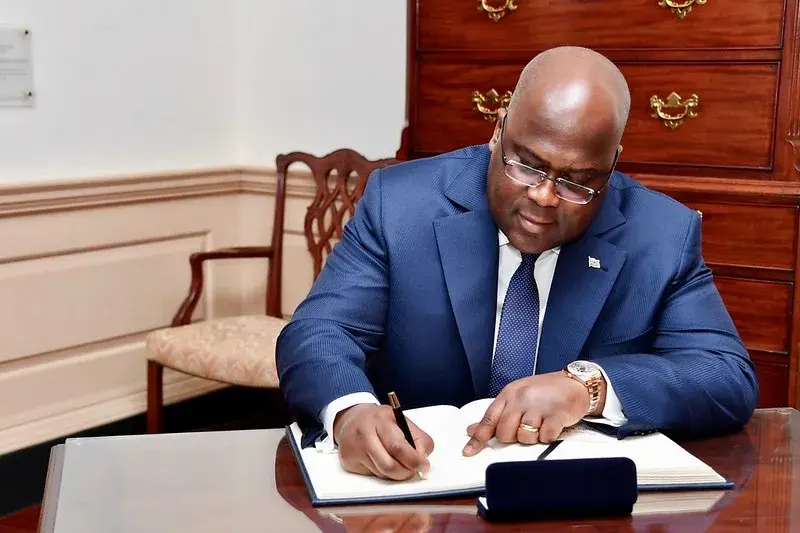The Constitutional Court of DR Congo confirmed the re-election of President Félix Tshisekedi, amid opposition protests and allegations of electoral fraud.

The re-election of President Félix Tshisekedi in the disputed December 20 polls was upheld by the Constitutional Court of the Democratic Republic of the Congo (DRC) , despite the opposition’s objections, who claim that the results were marred by irregularities.
The Constitutional Court of DR Congo stated that Tshisekedi received 73.47% of the votes, slightly higher than the 73.34% previously declared by the Independent National Electoral Commission (CENI), after the electoral authorities annulled the results of some constituencies due to irregularities.
The Constitutional Court also dismissed the appeals of the presidential candidate Theodore Ngoy, who finished in the last place with only 0.02% of the vote, and the politician David Ehetshe Mpala, who contested the electoral results.
Tshisekedi is expected to be inaugurated for a second term on January 20, in spite of the criticism from his main rivals: the former governor of the former province of Katanga (south), Moïse Katumbi, who came in second place with 18.08% of the votes; the influential Martin Fayulu, who obtained 5.33% of the vote and the 2018 Nobel Peace Prize laureate, gynecologist Denis Mukwege, who got less than 1%.
The three opponents have rejected the triumph of the Congolese leader and have demanded a new election, after denouncing the elections as “fraudulent”.
About 44 million people – out of the more than one hundred million inhabitants of the country – were summoned on December 20 to cast their vote in 75,000 polling stations in the presidential, legislative, provincial and local elections. However, only around 18 million valid votes were counted, representing a turnout of 43%.
The chaotic elections were plagued by delays and logistical issues, which required voting to be prolonged over several days, as well as by the opposition’s allegations of irregularities.
The influential National Episcopal Conference (CENCO) deployed almost 24,000 electoral observers, who reported vote buying, instances of violence and intimidation against voters, delays in the opening of polls and the expulsion of observers, among other violations. Thus, they stated that there were “numerous cases of irregularities” that could affect the results “in some places.”
Tshisekedi rose to power in the 2018 elections, which were criticized by the opposition and the international community.







